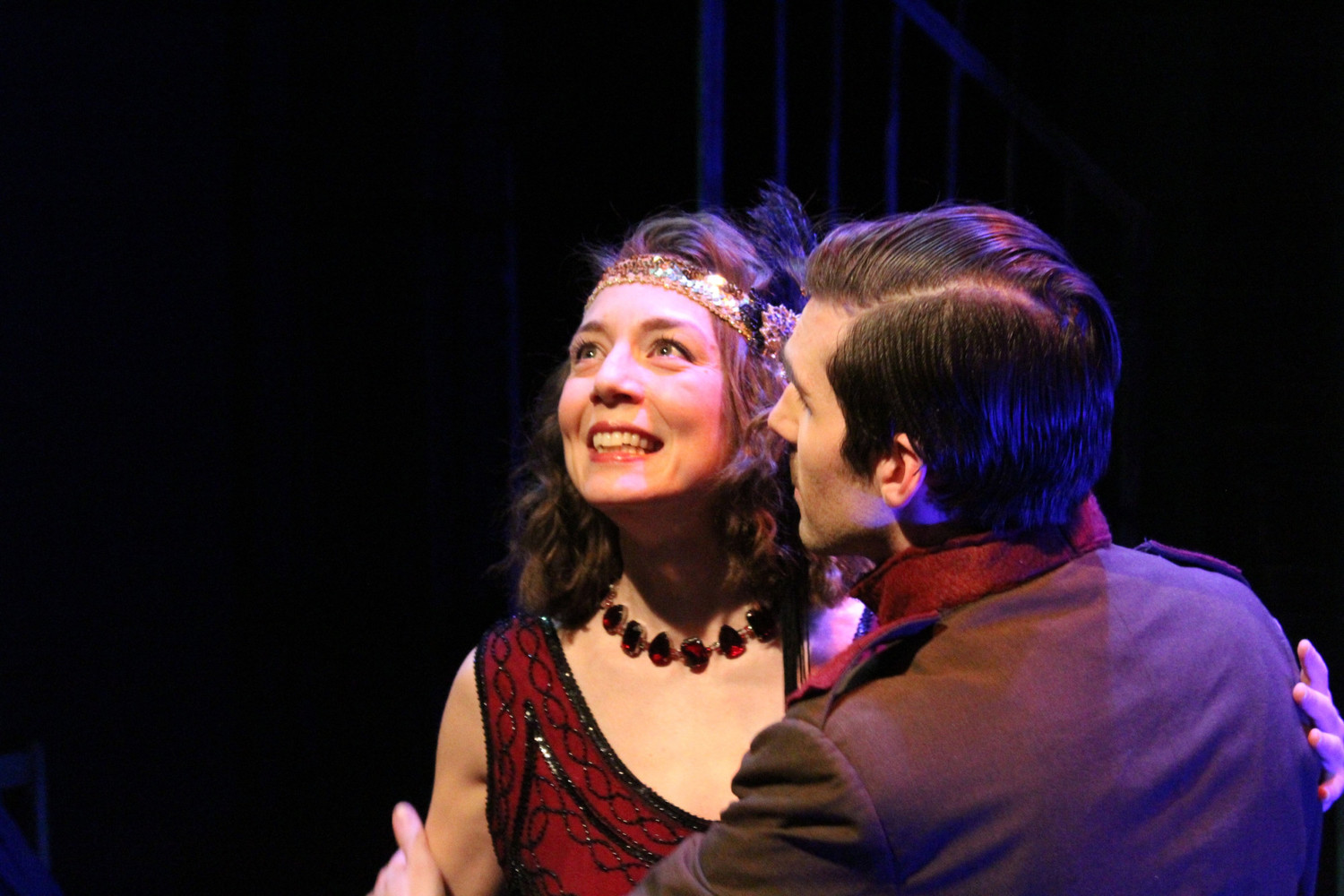Review: CLOTHES FOR A SUMMER HOTEL at RAINBOW THEATRE PROJECT

RTP ELEVATES A LESSER Tennessee Williams PLAY
The Rainbow Theatre Project production of Tennessee Williams' last play, Clothes for a Summer Hotel (1980), lavishes detailed attention on a script that the playwright called "a ghost story." Because Williams melodramatizes the lives of Zelda and Scott Fitzgerald, his finished product feels more like the ghost of a Tennessee Williams play; characters race through eventful episodes with theatricality but without the kind of deep character development at which the author of The Glass Menagerie, A Streetcar Named Desire, and The Night of the Iguana excelled. What excellence does appear in DCAC's tiny space derives from the fine work of director/designer Greg Stevens and his company.
With skill and energy, Sara Barker as Zelda Fitzgerald takes point for the 8 member cast. By ignoring Williams' awkward transitions, which cannot be made motivationally legible by the sturdy narration of Matty Griffiths, playing The Writer, Barker brings emotional consistency to an inconsistent character and script. Whatever scene/time/inner shift Williams serves, Barker returns it with zest and accuracy. Her Zelda-often angry, sometimes medicated for what was diagnosed in the 1930s as schizophrenia, occasionally endearing or seductive-always credibly lives. Barker's crafted intensity justifies the script's lack of focus.
As her partner, novelist F. Scott Fitzgerald, Aidan Hughes has trouble matching Barker's strength during Act I. When Hughes' Scott arrives to visit his wife in the mental institution to which she has been committed, the quarrelling amplifies the narcissism of both characters and makes it difficult for the audience to empathize with their obvious illnesses. (Fitzgerald is a recovering alcoholic in Act I, a practicing one in Act II.) When Barker's Zelda hurls abuse at Hughes' Scott, the latter yields as if the success gap between them were his fault. Zelda's dashed career dreams of dancing or painting or writing have fed her instability. When she projects her distress onto Hughes as her husband, he struggles to compete; but Williams' diversion to the metaphorical implications of the wind in the institution's garden where Scott and Zelda meet does not offer Hughes helpful tools. (The often too loud wind loop in Act I and surf loop in Act II threaten the audibility of Hughes and several other actors throughout the roughly 2 hour play.)
In the second scene of Act I, Hughes begins to parry Barker's emotional thrusting when Scott and Zelda sit down in a quieter duet during which an argument over word choice illuminates the fact that these people had a relationship that was not monotonously adversarial. In Act II, Hughes hits his stride in flashback scenes of a 1920s party at the Gerald Murphy's and in a slightly drunken duet with fellow writer Hemingway (Griffiths again).
Now Williams indulges in the fantasy about whether Hemingway's suicide and Fitzgerald's alcoholism were due to what Mart Crowley so bitingly described as the "Christ, was I drunk last night" behavior of a closted gay man. Historical evidence only suggests that both men were homophobic. But Williams' introduction of the speculation into this script just doglegs the Scott and Zelda story he otherwise seems to want to tell.
That story includes one of Zelda's affairs in engrossing scenes with Brian J. Shaw as Edouard, the French aviator who arranges trysts with Zelda on the beach and in a hotel on the French Riviera while Scott is AWOL indoors, sticking to his writer's regimen.
Director Stevens, serving as his own set designer, has deftly managed the cramped DCAC stage by painting a few furniture pieces to coolly contrast with the reddish brick wall of the Highland asylum. Bits of text projected on that wall highlight Williams' reaches for poetic language. Maria V. Bissex' costumes vibrantly suggest the period in the polished 1920s scenes. She organizes simple yet effective on-stage costume changes for many of the cast who play more than one role. And Zelda's disheveled tutu and Scott's white suit fit their meetings at the asylum in the 1930s. Well-chosen period songs bring poignancy to the production because so many of their lyrics reflect the interior monologues of the characters; e.g. "The Very Thought of You," "It All Depends on You," "Night and Day," "Our Love."
When the play concludes as Scott's visit ends, what Zelda yells after him ("I am no longer your book") does not earn a solution to this couple's turbulent saga. Clothes for a Summer Hotel, neither a documentary, biography, nor ghost story, may be an unsatisfactory text, but Rainbow Theatre Project's production lifts it into an absorbing evening of theatre. Tickets for performances through April 28 can be ordered at rainbowtheatreproject.org. DC Arts Center (DCAC), 2418 18th St. NW.
Add Your Comment
Videos
